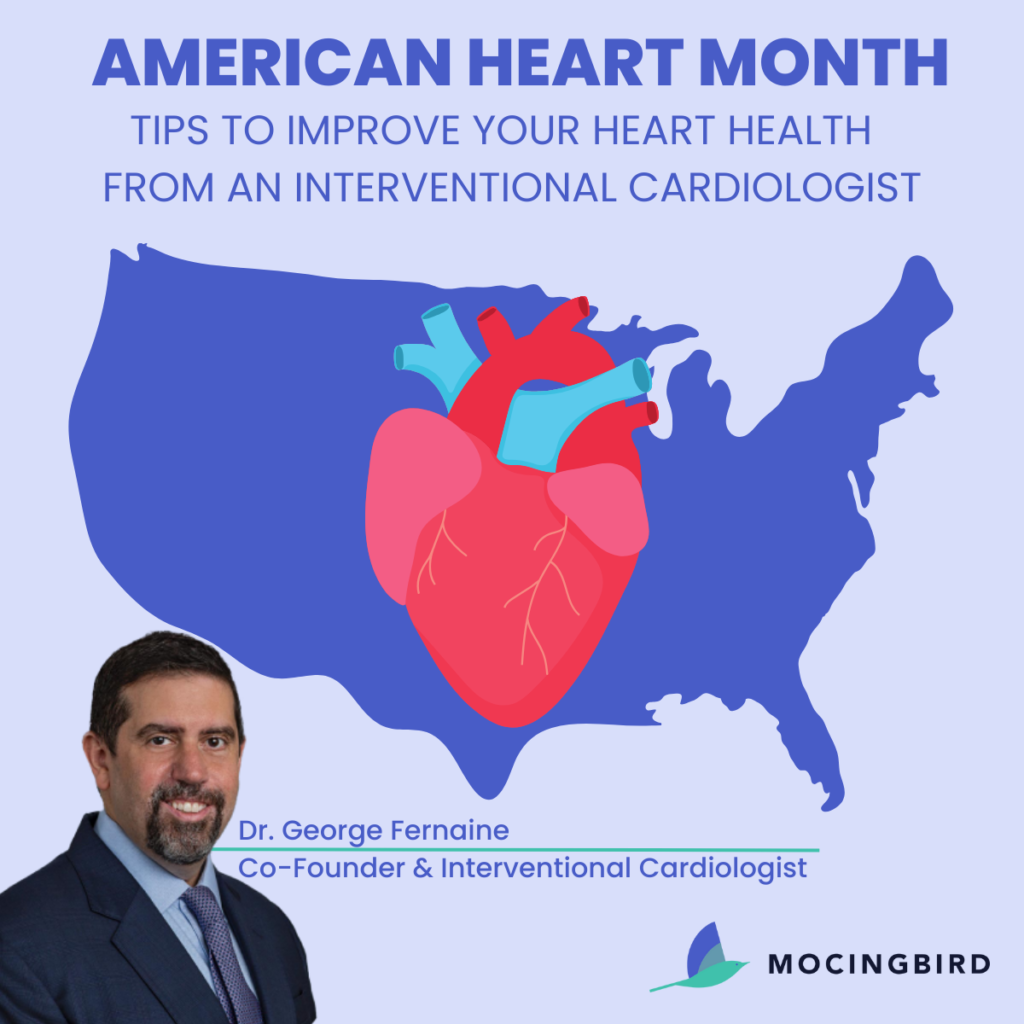Taking care of your heart is essential for a long and healthy life. If you want to improve your heart health, small lifestyle changes can make a big difference. Cardiovascular disease remains the leading cause of death worldwide, but the good news is that adopting healthier habits can strengthen your heart and reduce risk factors. In this guide, we’ll explore seven simple ways to improve your heart health, from better nutrition to exercise and smarter daily choices.

1. Balance Calories with Physical Activity
- To keep your heart healthy, it’s important to find a balance between the number of calories you consume and the energy you burn through physical activity. A sedentary lifestyle can contribute to weight gain, high cholesterol, and elevated blood pressure— all of which are risk factors for heart disease.
- It is recommended to aim for at least 30 minutes of moderate exercise 5-6 days a week. We understand that life can get hectic, and finding time can be challenging. To make it easier, try choosing an activity you genuinely enjoy and look forward to, whether it’s walking, swimming, or dancing. Your heart will thank you for it!
2. Eat more fruits and vegetables
- We’ve all heard it before, “Eat your fruits and veggies!” But it’s true! Packed with vitamins, minerals, fiber that lowers cholesterol, and antioxidants that protect your heart from inflammation, fruits and vegetables are an essential part of every meal and the key to keeping your heart healthy and lowering the risk of heart disease.
- Aim to fill half your plate with fruits and vegetables at every meal. The more colorful, the better! Dark leafy greens like spinach and kale, vibrant berries, citrus fruits, and veggies like broccoli and brussels sprouts are particularly heart-healthy choices.
3. Choose whole grains
- Whole grains are another excellent source of fiber, which lowers cholesterol levels and the risk of heart disease. Unlike refined grains, whole grains retain their natural fiber and nutrients, which contribute to better overall health.
- We suggest making healthy swaps like whole wheat bread instead of white bread, whole grain pasta, and opting for quinoa or brown rice instead of white rice. These small changes will help you feel fuller for longer, stabilize blood sugar levels, and provide your heart with the fuel it needs to function at its best.
4. Choose healthy protein sources
- Protein plays a crucial role in heart health for many reasons including maintaining healthy cholesterol levels, regulating blood pressure, and reducing inflammation to name a few. While it’s important to get enough protein,not all protein sources are created equal.
- For optimal heart health, prioritize plant-based proteins and fish over red meat and processed meats. Plant-based protein sources like beans, lentils, tofu, and tempeh are rich in fiber and low in saturated fat. Fatty fish like salmon, mackerel, and sardines are loaded with omega-3 fatty acids, which are known to reduce inflammation and improve heart health.
5. Subtract added sugars
- Added sugars are one of the biggest contributors to heart disease risk. Consuming too much sugar can lead to weight gain, increase your blood sugar levels, and raise the risk of developing conditions like type 2 diabetes, all of which are linked to heart disease.
- To cut back on sugar, start by reading labels for hidden sugars like high-fructose corn syrup or cane sugar. Check both the ingredient list and nutrition facts. Also, avoid sugary drinks like soda and energy drinks. Instead, choose water, herbal teas, or sparkling water with a splash of lemon for a healthier, sugar-free alternative.
6. Cut down on salt
- Too much salt in the diet can lead to high blood pressure, which is one of the major risk factors for heart disease. When you consume excess salt, your body retains water, which can increase blood volume and force the heart to work harder. Over time, this puts strain on the cardiovascular system.
- Simple ways to cut back on salt include cooking at home, which lets you control how much salt goes into your meals. Limiting processed and pre-packaged foods is also key, as these often contain high levels of sodium. Opt for fresh, whole foods whenever possible and reduce your intake of processed snacks.
7. Limit alcohol and don’t smoke
- Both smoking and excessive alcohol consumption are significant risk factors for heart disease. Smoking damages blood vessels, raises blood pressure, and increases the likelihood of plaque buildup in the arteries, all of which can contribute to heart disease.The benefits of quitting smoking for heart health are immediate. Within just 20 minutes of quitting, your heart rate and blood pressure drop. Over time, your risk for heart disease decreases significantly.
- Similarly, drinking too much alcohol can lead to high blood pressure, obesity, and an irregular heartbeat. If you drink, do so in moderation. The American Heart Association recommends up to one drink per day for women and two for men.
In conclusion, improving your heart health doesn’t have to be overwhelming. Small changes, like eating more fruits and vegetables, staying active, and choosing healthier foods, can have a profound impact on your cardiovascular health. By adopting these seven simple habits, you’ll be well on your way to a healthier, happier heart– and a longer, more vibrant life.
About Mocingbird
Mocingbird is a SOC 2 and HIPAA-compliant, physician-founded, cloud-based platform revolutionizing the way healthcare professionals and organizations manage medical licensing and Continuing Medical Education (CME) requirements. By automating the entire licensing process—from initial applications to renewals and CME tracking—Mocingbird helps clinicians stay compliant and focus on patient care while reducing administrative burdens. With a team of licensing experts and a comprehensive, user-friendly dashboard, Mocingbird ensures that clinicians and healthcare organizations meet all regulatory requirements with ease. Trusted by medical professionals nationwide, Mocingbird is committed to improving clinician well-being and operational efficiency across the healthcare industry.




